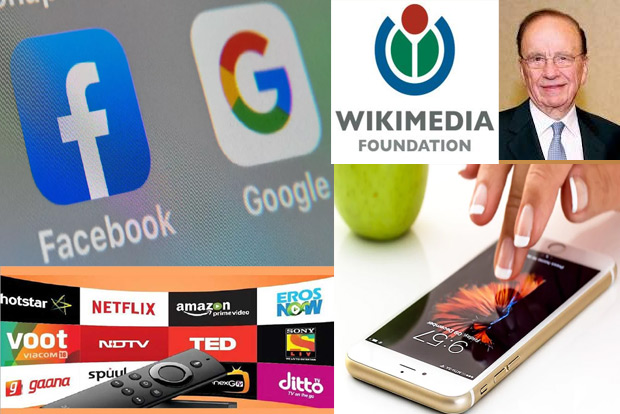Begin typing your search...
Editorial: Freedom sought from freeloaders
In a classic case of the chickens coming home to roost, Google has been asked by a French appeals court to start negotiations with news publishers in the country to remunerate them for using their news content.

Chennai
France’s competition authority invoked its ‘neighbouring rights’ law, adopted in the aftermath of the EU overhauling copyright rules for the bloc. The law permits news publishing firms to demand payment from search engines for displaying snippets of their stories. In the light of falling advertising revenues, a big chunk of which is swallowed up by tech giants, the media industry is compelled to rethink its business models, and the latest development is in line with that thought.
The ball was set rolling earlier this year when the Australian Competition and Consumer Commission was asked by the government to introduce a code of conduct that would iron out imbalances in bargaining power between publishers of news and internet majors such as Google and Facebook. Its draft News Media Bargaining Code unveiled in July, offered news publishers the right to negotiate for remuneration whenever their articles appeared on these major portals. These changes in the industry are occurring even as Google had pledged last week to pay publishers globally an amount of $1 bn over three years for the usage of their news content. As many as 200 publishers from six countries, including Argentina, Australia, Britain, Brazil, Canada, and Germany have signed up with the company, while India, Belgium, and the Netherlands will be onboarded later.
It seems telling how the internet, which was once described as the most exhaustive and cheapest repository of information on Earth, is now gradually finding itself dancing to the tunes of market realities, and the need for monetisation. A few weeks ago, Wikipedia, the free encyclopaedia had placed a banner on its landing page asking users to donate to the Wikimedia Foundation, to ensure it’s not forced to go the commercial way, seeking out advertisers to keep it running. Referring to the site as a place of learning, and a source for reliable, neutral information, founder Jimmy Wales appealed to users to defend its independence.
Many fail to realise that the free availability of information on the internet comes with riders. A myth perpetuated since the internet penetrated millions of households was that any content that appeared online would be ‘free of cost’. What netizens had taken for granted was that the rules that apply in the physical world i.e. those pertaining to paying for actual goods or services, were rendered null and void on the internet. While the internet created an ecosystem that democratised information for everybody, it also led to many embracing piracy via file-sharing networks and torrent portals. Here, downloading everything from books to films, music, and software was deemed kosher, as long as one didn’t get caught. It created an underground market for anything that would have entailed a long drawn IP battle, had it been replicated and shared in that magnitude in the offline world.
In 2009, media mogul Rupert Murdoch had advocated a system of micropayments to help newspaper firms sell their content online. While that model met with limited success, content providers globally have latched onto models such as the freemium pricing strategy and paywall based architecture to monetise their products. Following the advent of high-speed broadband and unlimited mobile data, providers of services including HD TV/cinema on-demand (via OTT platforms) and streaming music, have begun offering pocket-friendly, device agnostic and free-trial based subscription models to subscribers in India. To put this in perspective, after the pandemic struck the country, between March and July 2020, the nation’s OTT business saw a 30 per cent rise in paid subscribers from 22.2 mn to 29 mn.
It’s about time, we abandon the culture of freeloading and begin paying for content, no matter what form it appears in. The existence and continuity of content and media as we know them, depend on it.
Visit news.dtnext.in to explore our interactive epaper!
Download the DT Next app for more exciting features!
Click here for iOS
Click here for Android
Next Story



